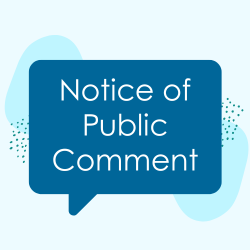Upcoming Events
-
Today
7:40 AM - 12:10 PM Cooperative Summer School Starts
-
July 26, 2025
-
August 14, 2025
-
August 19, 2025
-
August 20, 2025
-
August 28, 2025
-
September 1, 2025
-
September 2, 2025
-
September 3, 2025
-
September 11, 2025
-
September 24, 2025
-
September 25, 2025
-
October 1, 2025
Headlines
-

NOTICE OF PUBLIC HEARING AND COMMENT PERIOD: Adoption of District-Wide School Safety Plan
Notice is hereby given of the intention of the Monroe One BOCES Board of Education to hold a public hearing on the adoption of the 2025-2026 District-Wide School Safety Plan.
-

Adult Student Award of Excellence recipient reflects on life-changing decision
Matthew Williams was named the recipient of EMCC’s 2025 Adult Student Award of Excellence.
-

Community Connections
Monroe One BOCES is proud to announce its new Community Connections program - a celebration of businesses who help bridge the gap between the classroom and career.
-

Monroe One's Assistant Superintendent honored with career award
Assistant Superintendent for Finance and Operations, Lisa Ryan, has been honored with the Philip B. Fredenburg Memorial Award for Outstanding Service by the Association of School Business Officials.
-

Congratulations, Creekside Award winners!
Creekside Award winners remind us what growth, connection, and perseverance look like in action.
Our Mission
-
To cooperatively meet the evolving needs of all learners, educators, and district partners.
Our Vision
-
As an educational organization, Monroe One actively engages in fostering an equitable, diverse, and inclusive culture that will empower every student, family, and staff to grow and thrive.
Equity Pillars
-
Monroe One is committed to the overall mission of a Board of Cooperative Education Services; to serve our students and school partners while being fiscally responsible and meeting their individualized needs. Monroe One is committed to doing so in a transparent and efficient manner so that all school staff, students, families, and school partners are active participants in the decisions made. By continuously evolving and understanding, we will foster a school community where everyone is included.
-
Collaboration is the foundation of a BOCES organization. As part of a cooperative network, we operate within a well-defined structure of accountability for effectiveness and efficiency. We partner with and support school districts and students as educators for all ages and abilities. We will collaborate with our internal and external partners so that every voice matters. We understand relationships are at the heart of growth. As leaders in education, we are dedicated to working with our partners in identifying and supporting actions that center on learning for all.
-
We recognize that a school community thrives when staff, students, families, and partners come together with a shared purpose. We are dedicated to fostering meaningful connections so that every learner is engaged, supported, and encouraged. Through collaboration and shared responsibility, we can create an environment where all learners can reach their full potential. The commitment to the strength of community is unwavering.
-
To create a school community where all belong, it requires a mindset steeped in compassion and a willingness to connect. To generate real change, we must provide a learning and working environment where people are respected and appreciated. This allows individuals of all backgrounds to share a safe space in understanding and connecting with one another. It aligns with our restorative and trauma-responsive practices which center around the social-emotional wellness of all staff, students, their families, and the community.

